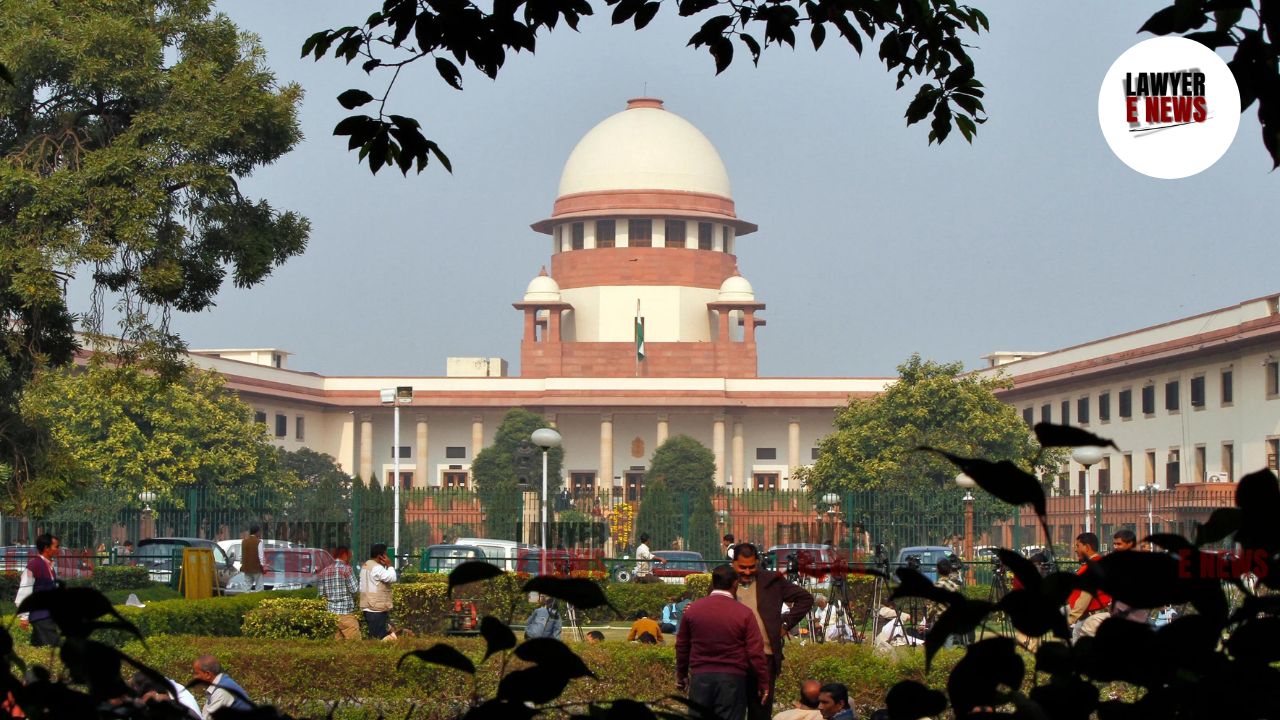-
by Admin
15 February 2026 5:35 AM



Failure to Secure Co-Owners’ Consent Is Fatal to Specific Performance Claims - Supreme Court of India delivered a significant judgment in the case of Janardan Das & Ors. vs. Durga Prasad Agarwalla & Ors. The Court set aside a 2013 judgment by the High Court of Orissa, which had granted specific performance in favor of the plaintiffs. Instead, the Court restored the Trial Court's dismissal of the suit, emphasizing that the plaintiffs had failed to secure the consent of all co-owners of the property and demonstrate readiness to perform their part of the contract.
The dispute originated from a 1994 suit for specific performance filed by the plaintiffs, Janardan Das and another, seeking enforcement of an agreement to purchase a property in Baripada, Odisha. The property, owned by multiple co-owners, was subject to conflicting sales agreements—one between the plaintiffs and two co-owners, and another between the appellants (Defendant Nos. 9 to 11) and all co-owners.
The plaintiffs alleged that they had entered into an agreement to purchase the property for ₹5,70,000 from Defendant No. 1 and his brother (late Soumendra Banerjee). However, three other co-owners, Defendant Nos. 6 to 8, did not sign this agreement, making the sale incomplete.
On September 27, 1993, a registered sale deed for the property was executed in favor of the appellants, who were bona fide purchasers, with the participation of all co-owners. This prompted the plaintiffs to file a suit for specific performance of their earlier agreement, which the Trial Court dismissed in 1997.
The Supreme Court focused on three key legal issues:
I. Readiness and Willingness to Perform the Contract
The Court underscored that under Section 16(c) of the Specific Relief Act, 1963, a party seeking specific performance must demonstrate continuous readiness and willingness to fulfill their contractual obligations. The Trial Court had found that the plaintiffs failed to take any steps to secure the consent of Defendant Nos. 6 to 8, despite the agreement explicitly stating that their participation was necessary. This lack of initiative was fatal to their claim.
Quoting the Trial Court's findings, the Supreme Court noted, "The plaintiffs did not issue any notices or correspondence to the absent co-owners and did not take effective steps to bring them on board within the stipulated time." The High Court’s contrary conclusion, which found the plaintiffs willing and financially capable, was deemed to lack thorough examination.
II. Validity of the General Power of Attorney
Another major issue was whether Defendant No. 1 had the authority to sell the property on behalf of Defendant Nos. 6 to 8 based on an unregistered General Power of Attorney (GPA) dated 1982. The Trial Court concluded that this GPA was revoked by a registered partition deed of 1988, which allocated specific shares to the co-owners and limited Defendant No. 1's authority to rent collection, not property sales.
The Supreme Court agreed with this finding, observing, "The GPA, which was unregistered and over a decade old, was effectively revoked by the partition deed, and Defendant No. 1 could not bind his sisters to the agreement." The Court found that the High Court had erred by overlooking this critical limitation on Defendant No. 1’s authority.
III. Discretionary Nature of Granting Specific Performance
The Court highlighted that specific performance is a discretionary remedy under Section 20 of the Specific Relief Act (pre-2018 amendment). Even when a contract is legally enforceable, the court must consider if it would be equitable to grant the remedy.
The Court found that enforcing the agreement would be inequitable since the majority of the co-owners (Defendant Nos. 6 to 8) were never part of the deal, and the bona fide purchasers (appellants) had already acquired valid title to the property. The Court also emphasized that the plaintiffs could be adequately compensated with a refund of their earnest money.
Ultimately, the Supreme Court allowed the appeal, restoring the Trial Court’s judgment dismissing the suit for specific performance. It ordered the appellants to refund ₹10,00,000 (inclusive of earnest money and interest) to the plaintiffs. The Court reasoned that the High Court erred in decreeing the suit for specific performance, as it disregarded the plaintiffs' failure to perform essential contractual terms and the bona fide purchase by the appellants.
The judgment reaffirmed that specific performance is a discretionary remedy and should not be granted when a plaintiff fails to demonstrate readiness, willingness, and secure the necessary consents from all parties involved. The Supreme Court's ruling restores clarity on the importance of proper authorization in property transactions and upholds the rights of bona fide purchasers.
Date of Decision: September 26, 2024
Janardan Das & Ors. vs. Durga Prasad Agarwalla & Ors. (Civil Appeal No. 613 of 2017).
